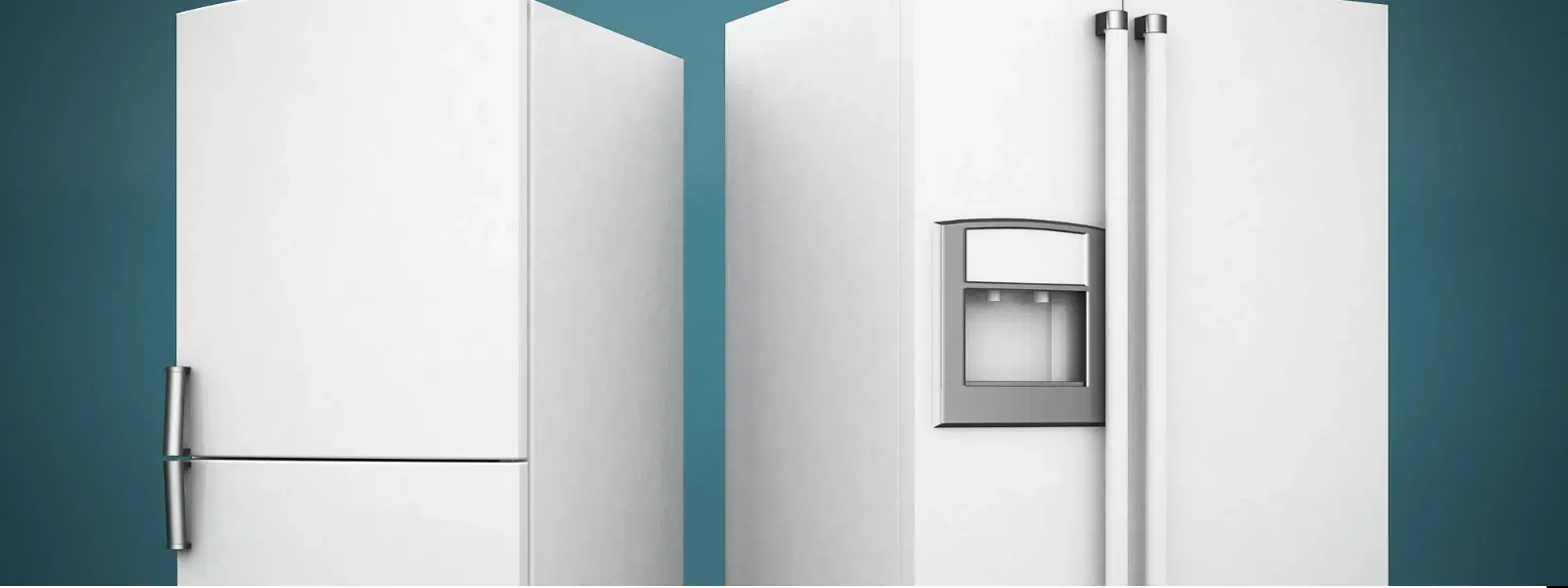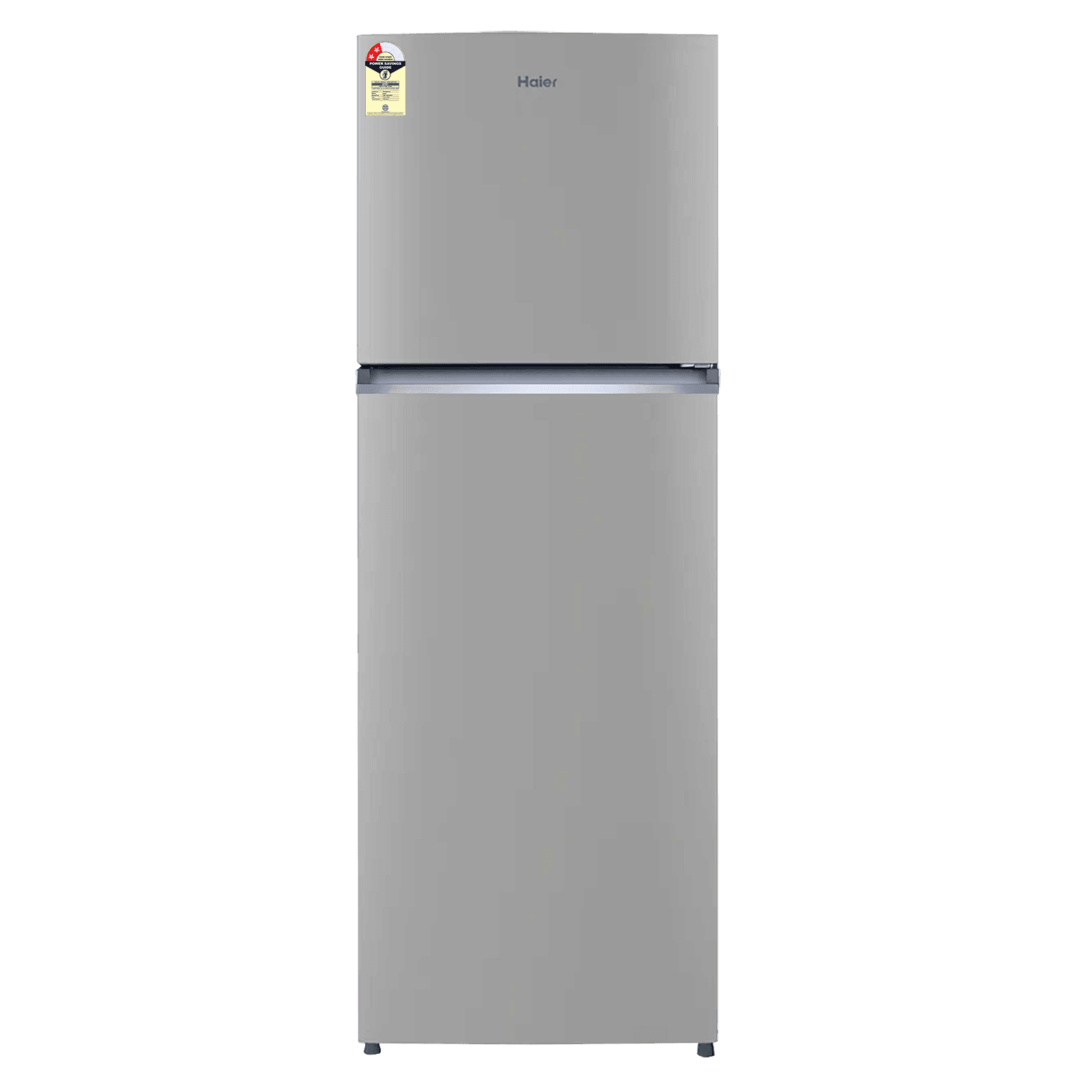
Home Appliances
•04 min read

Buy SAMSUNG Stylish Grande 223 Litres3 Star Direct Cool Single Door Refrigerator with Base Stand Drawer (RR24C2Z23CR/NL, Camellia Purple) online at best prices from Croma. Check product details, reviews & more. Shop now!
When choosing a refrigerator, one of the most critical factors to consider is balancing fridge capacity with storage space. Deciding the perfect fit for your household needs can become quite challenging, especially when your daily routine, kitchen layout, and storage habits are involved. In this post, we will explore the meaning of fridge capacity and refrigerator storage space, provide a comprehensive fridge size guide, and help you understand which type suits different scenarios, leaving you ready to make an informed decision.
What is Fridge Capacity?
Fridge capacity refers to the total internal volume of your refrigerator, usually measured in cubic feet or litres. It gives you a clear idea of how much room you have for your groceries, leftovers, and other food items. This measurement is particularly important for families or individuals with specific storage needs, ensuring that there is ample space for everything from daily essentials to bulk storage.
What is Refrigerator Storage Space?
Refrigerator storage space, on the other hand, is all about the design and functionality within the unit. It includes the arrangement of shelves, compartments, and the ratio of freezer to fridge sections. Unlike general fridge capacity, storage space focuses on how efficiently the available volume is organised to cater to your specific needs.
Key Differences at a Glance
While fridge capacity measures the overall internal volume, refrigerator storage space is all about the internal configuration. A large fridge capacity may offer significant volume, but if its layout is not adaptable to your storage habits, you may still feel short on space. Conversely, an intelligently organised storage area can make a smaller capacity fridge work exceptionally well for your household.
Family Size and Lifestyle Needs
Your household size plays a big role in determining the optimal fridge capacity. For smaller households or singles, compact fridge options might suffice, while larger families could benefit from a greater family fridge capacity. Think about whether you often shop in bulk or prefer daily fresh groceries. The number of people in your home and your lifestyle habits help guide your decision on how much space you really need.
Kitchen Layout and Space Requirements
It is equally important to consider the physical footprint of the refrigerator in your kitchen. The dimensions—width, height, and depth—determine how well the appliance fits your available space. Reflect on factors such as ventilation requirements, door swing space, and other appliances that share proximity. Ensuring the unit fits not only within your kitchen but also within the designated delivery paths is essential for a seamless shopping experience.
Usage Patterns and Food Storage Habits
How you store your food is another key factor. For those who spend time meal prepping or store a variety of fresh, frozen, or refrigerated items, balanced freezer and fridge storage is important. The frequency of grocery shopping and the specific separation between freezer and fridge space can enhance longevity and efficiency of your refrigerator.
Small Refrigerator Dimensions
Compact fridge options are ideal for urban apartments or spaces where a full-size model might not fit. These models are popular with singles and young professionals who need essential storage without taking up too much room.

Buy SAMSUNG Stylish Grande 183 Litres3 Star Direct Cool Single Door Refrigerator with Anti Bacterial Gasket (RR20C2Y23S8/HL, Elegant Inox) online at best prices from Croma. Check product details, reviews & more. Shop now!
Large Fridge Capacity
For families or those with bulk storage needs, a larger fridge capacity is most beneficial. Larger units come with thoughtfully crafted freezer and fridge storage configurations that can handle a wider variety of items. This can be particularly useful if you enjoy variety in your groceries or host gatherings frequently.
Standard Refrigerator Sizes and Space Requirements
Many models follow standard sizing in centimetres and cubic feet, making it easier to compare models and choose one that fits your kitchen. Knowing your kitchen's measurements ensures a proper fit, eliminating the stress of last-minute installation issues.
Single vs Family Households
Single individuals or couples could find that a smaller capacity with well-organised storage space offers everything they need without occupying too much space. By contrast, larger households benefit from a bigger unit that offers a dedicated space for varied food items while balancing freezer and fridge space efficiently.
Cooking Enthusiasts vs Minimalists
For those who love to cook, meal prep, and experiment with different cuisines, a fridge that accommodates an array of ingredients is crucial. In contrast, minimalists who prioritise simplicity may find compact fridge options more suitable. Understanding your specific food storage and usage patterns helps determine the optimal fridge capacity.
Compact vs Full-Size Options
Choosing between compact and full-size options depends on your daily requirements and space constraints. Compact choices work well in modest kitchens, while full-size models provide the luxury of space for those who demand a wide variety of storage compartments and robust capacity.
Different types of refrigerators are designed to cater to diverse needs. A side-by-side appliance size comparison reveals that each model, whether top-freezer, bottom-freezer, French door, or side-by-side, impacts storage space in distinct ways. Every configuration has its merits and should be chosen based on your specific usage and space requirements. For example, French door models often offer more adjustable shelving, while top-freezer designs can be a better fit for smaller spaces.
Did You Know?
Refrigerator capacity isn’t just about size—it’s also about efficiency. A well-organised fridge with adjustable shelves can maximize storage space without increasing overall capacity.
To make the selection process easier, consider utilising fridge capacity calculators and charts that help align your specific requirements with available models. These tools can provide a clear estimate of the volume you might need based on household size and food storage habits.

Buy Haier HRF-2902 240 Litres 2 Star Frost Free Double Door Refrigerator with Stabilizer Free Operation (HRF-2902IEBS-P, Brushline Silver) online at best prices from Croma. Check product details, reviews & more. Shop now!
Fridge capacity refers to the total internal volume of a refrigerator, measured in cubic feet or litres.
The average capacity for most households ranges from 10 to 20 cubic feet, depending on the model and type.
Your needs depend on factors like family size, kitchen space, and food storage habits, typically around 4-6 cubic feet per person.
Measure the internal dimensions (height, width, depth) and convert this volume to cubic feet or litres to get an accurate estimate.
Choosing the right refrigerator involves balancing fridge capacity and storage space to meet your household’s unique requirements. By considering family size, kitchen layout, and personal food storage habits, you can select a refrigerator that offers both ample capacity and efficient organisation. The right balance not only ensures convenience but also elevates everyday living by fostering an atmosphere of efficiency and simplicity.
With the added benefits from Tata Neu such as NeuCoin earn opportunities and express delivery, you can shop smartly while enjoying seamless after-sales support. Our commitment to delivering advanced technology and unmatched after-sales service ensures you make a purchase that not only addresses your needs today but also supports your lifestyle aspirations tomorrow. Embrace the comfort that comes with a perfectly sized refrigerator, and transform your everyday experience by investing in a solution tailored just for you.